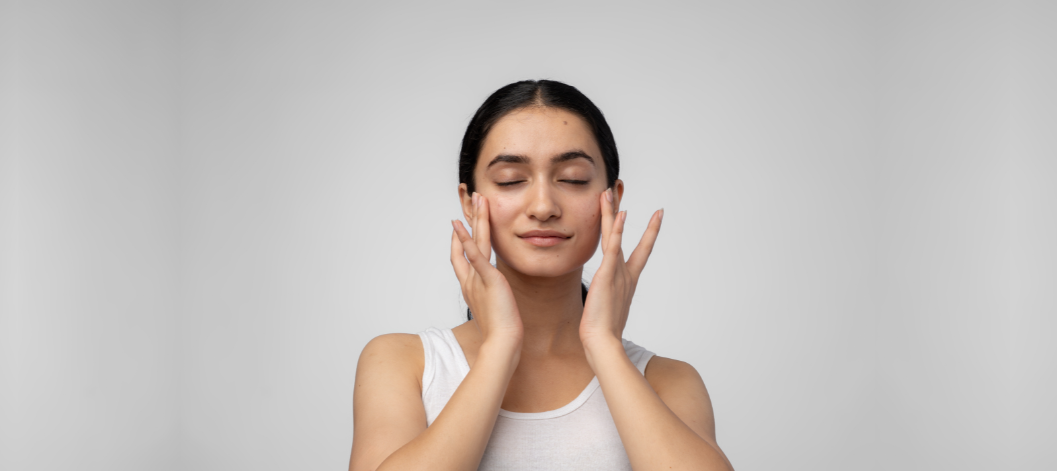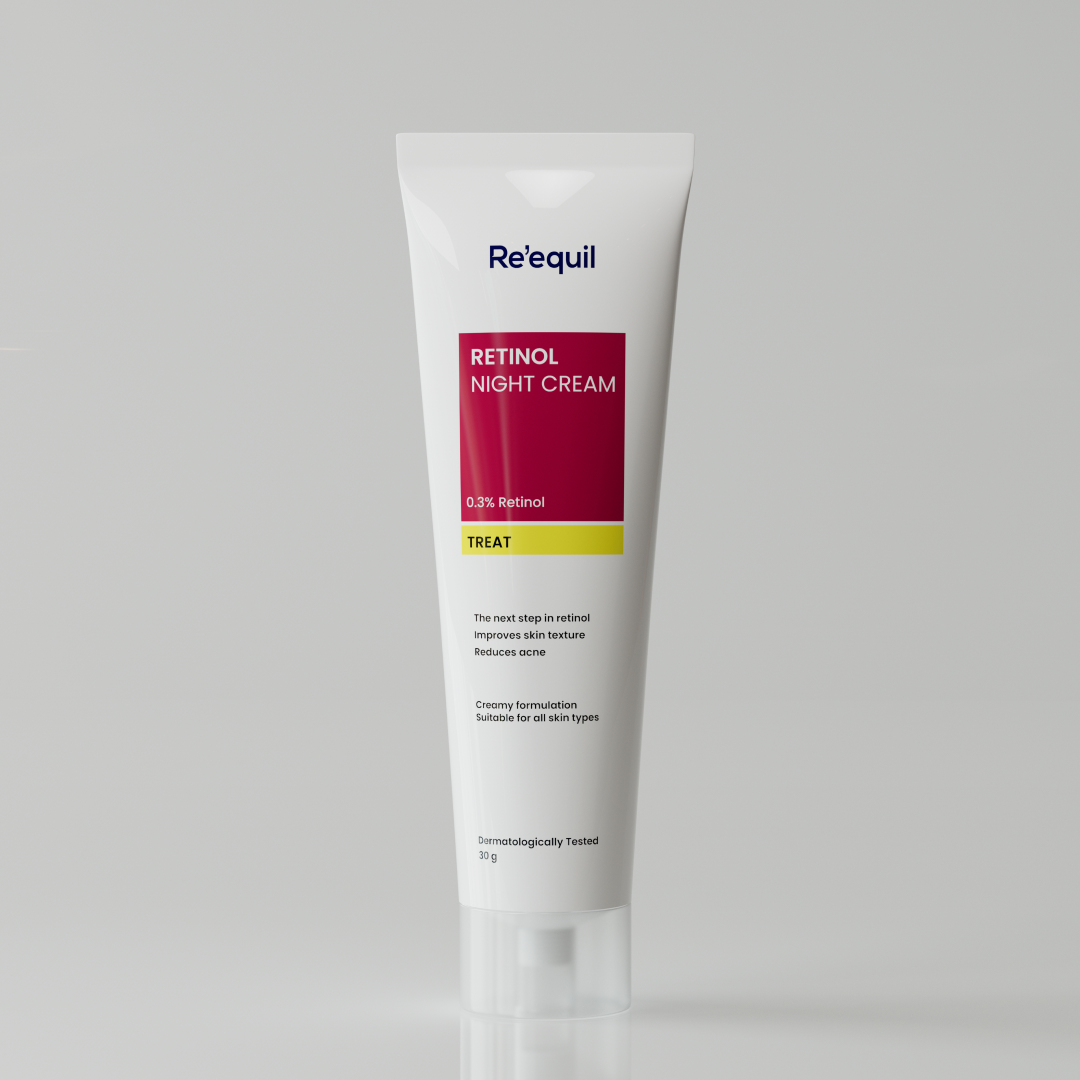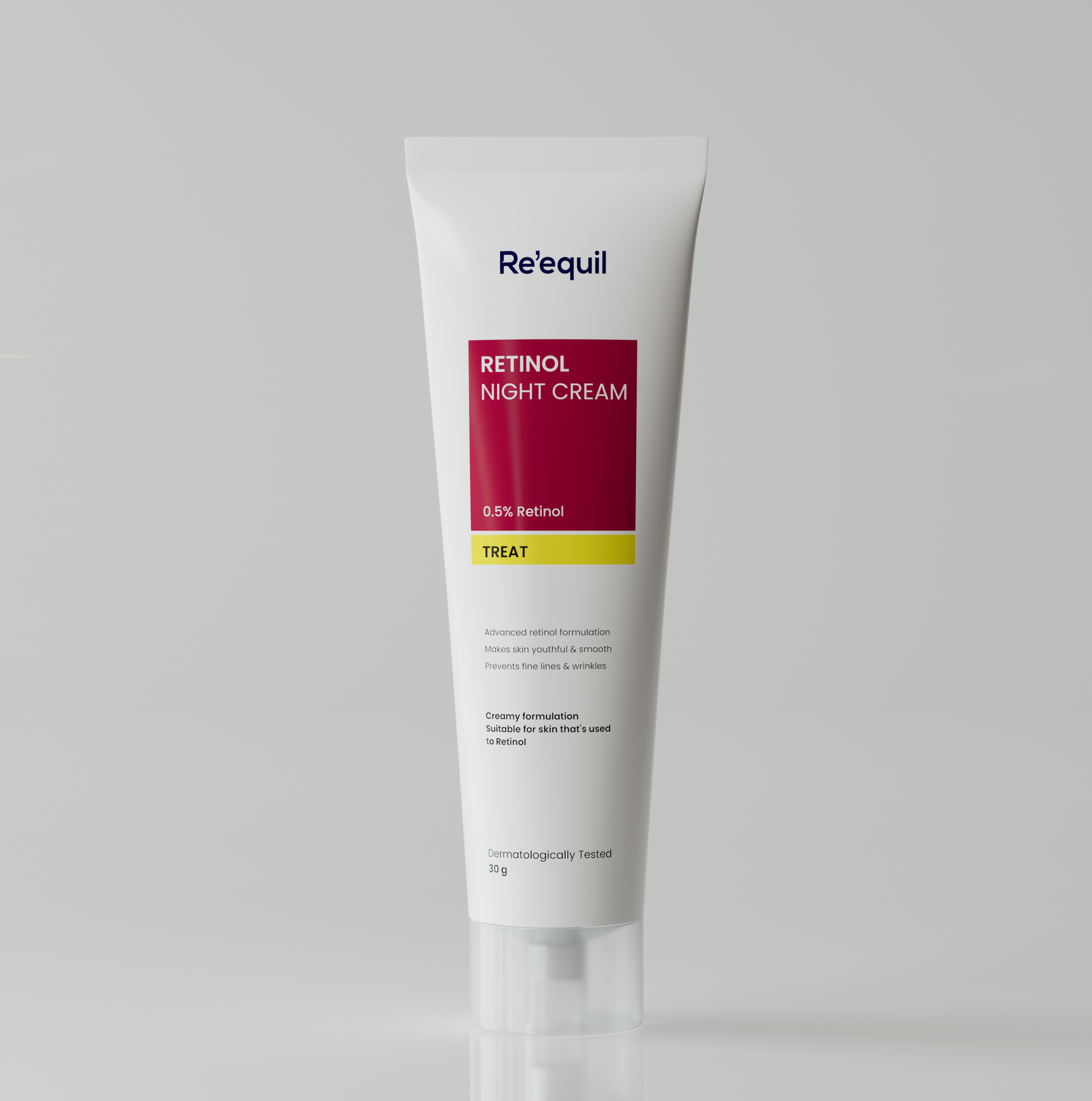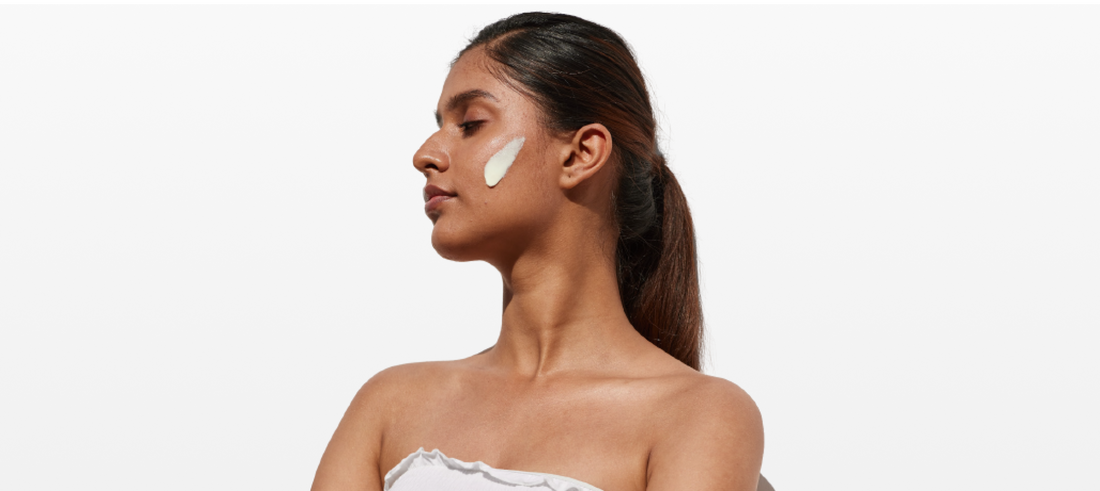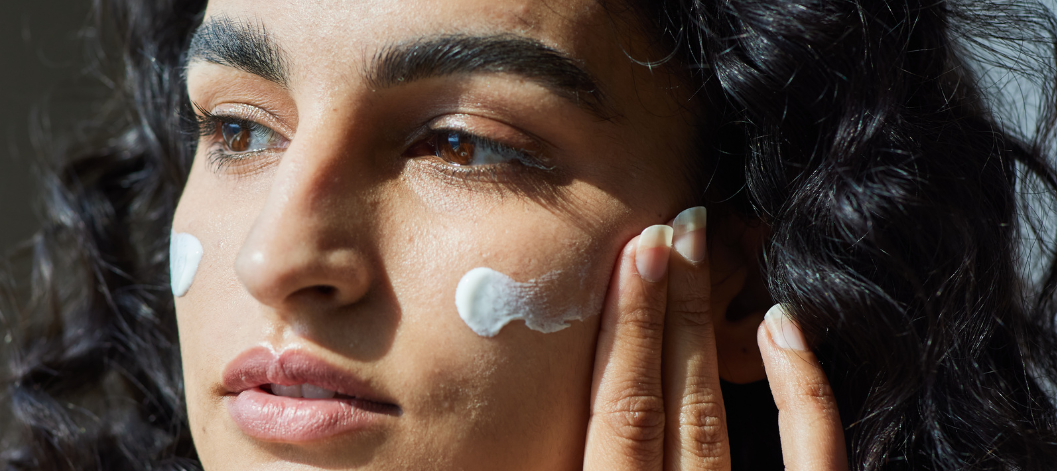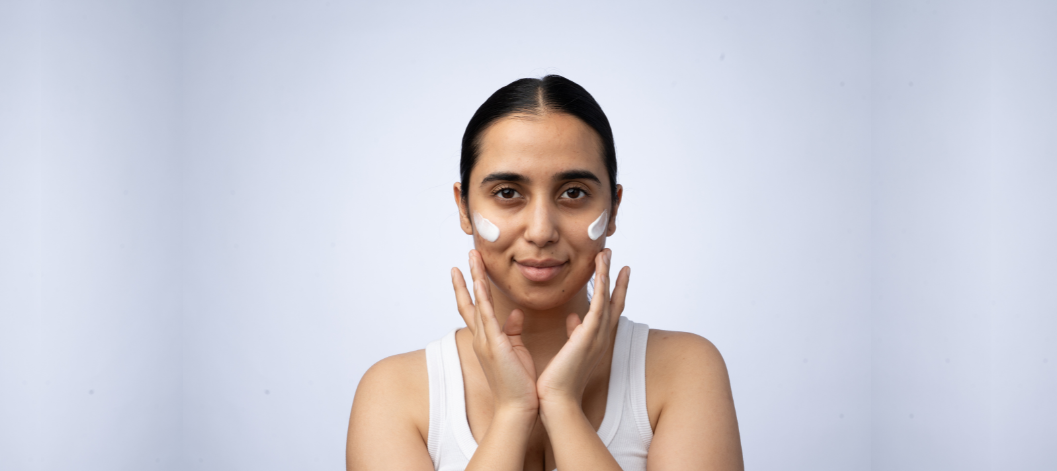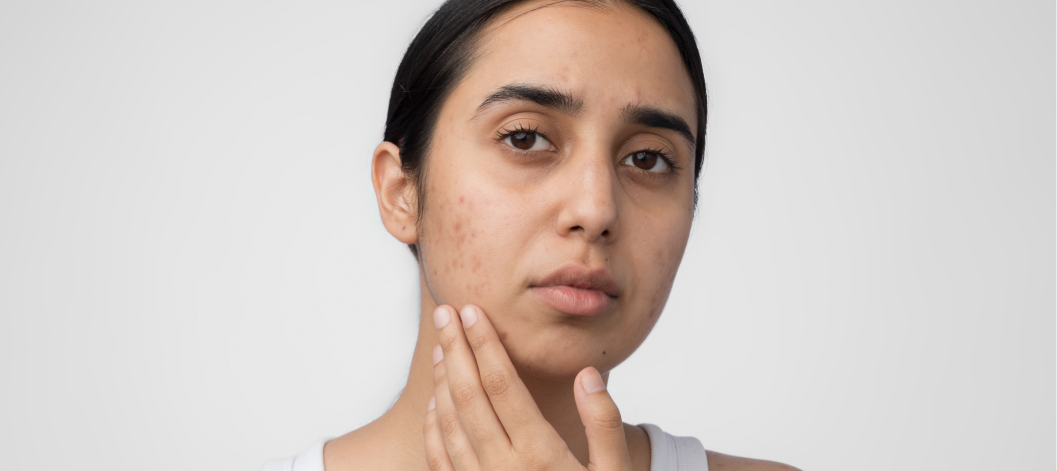Retinol's various benefits make it a favourite amongst its users as well as most dermatologists.
However, there is a wide variety of Retinol products available in the market - creams, serums, under-eye creams - so it may be confusing, and many people may use the wrong product.
Although they all contain Retinol as their base ingredient, these products differ in several ways.
So how do you know which product you should go for? Simple! We are here to answer all your questions about Retinol and Retinol use.
What is Retinol?
Retinol is the scientific term for Vitamin A. It is primarily used as an anti-ageing product to prevent the signs of early ageing.
Considered highly effective for all skin types, a Retinol night cream stimulates the production of new collagen fibres that have anti ageing effects.
This is why the use of Retinol is growing tremendously in the skincare industry.
With all of its properties, it is (literally) a holy grail for your skin. Retinol is available in the form of liquids, gel, serums, cream, and emollient in the market.
5 major benefits of Retinol that you should definitely know
Retinol is a popular ingredient in the skincare industry, yet many people aren't fully aware of how it helps with aging skin.
Known for its powerful anti-aging properties, Retinol provides numerous benefits.
1. Thickens epidermis to improve the appearance of fine lines and wrinkles
The vitamin-A derivative, Retinol, works to thicken the epidermis. The epidermis is a layer of the skin that loses over time, which results in fine lines and wrinkles.
Retinol helps catalyse the production of collagen in the skin. Thus, the blood vessel production rises, which in turn enhances the skin texture and colour.
Besides, dermatologists recommendRetinol night cream to the ones with age spots and apparent wrinkles.
2. Promotes cell turnover to resurface the skin and refine enlarged pores
Retinol promotes cell turnover, skin resurfacing and pore refining. Pores are minute openings that cover the entire body.
They release sebum (natural oil produced by the sweat gland) that helps moisturise the skin.
However, it does make the skin appear oily and clogged. While you cannot get rid of these pores completely, you can lessen their appearance.
Research proves that Retinol is an antioxidant that boosts collagen production. This protects the skin against photodamage, which results in enlarged, clogged pores.
What's more, Retinol promotes cell turnover. Its small particles embed themselves deep into the dermis of the skin.
This helps neutralise free radicals, which boosts the production of new and healthy cells. Thus, it removes the dead skin layer, rejuvenating the skin.
3. Boost collagen production for skin firmness and elasticity
Retinol promotes collagen synthesis by triggering fibroblast cells.
It also boosts the production of elastin fibre (along with collagen fibre). With more collagen in the body, the skin gets tighter and more elastic.
That's because collagen fibre increases the number of red blood cells, which helps improve skin colour and texture.
It also removes the dead skin layer, resurfacing and rejuvenating the skin.
4. Reverses sun damage and photoaging due to its antioxidant potential
Photodamage or sun damage is the adverse effect that sunlight causes on the skin.
It causes the collagen fibres that primarily make up connective tissue to become disorganised, as well as accumulate abnormal, amorphous elastin-containing deposits, known as actinic elastosis.
Since Retinol is an antioxidant, it works to reduce photodamage, reverse sun damage and photo-ageing.
Besides, Retinol can help reduce dark/brown spots and even out skin pigmentation.
5. Makes skin plump
Because Retinol promotes collagen fibre production and stimulates cell turnover, it helps restore plumpness of the skin.
The improved production of RBCs plumps up the skin, making it appear clearer, tighter, and smoother. Besides, it also helps shrink large pores and reduce dark spots.
Frequently Asked Questions about Retinol, Answered
Q.1 How to avoid redness, flakiness, dryness and purging during initial stages of Retinol application?
Ans. Remember that some level of mild irritation is common when starting Retinol.
Gradually introducing Retinol into your skincare with a lower concentration of 0.1% routine is the key to minimise these initial side effects while still reaping the benefits of Retinol.
Opt for a Retinol product that is enriched with plant-based, natural skin calming ingredients like Bidens Pilosa extract and Elaeis Guineesis oil, as their emollient and antioxidant properties effectively treat fine lines, wrinkles and pigmentation while minimising the effects of skin peeling, purging and redness.
Other precautions to keep in mind -
- Perform a patch test on a small area of skin to check for any adverse reactions or sensitivity.
- Use a small amount (about a pea-sized) of Retinol for your entire face. Applying too much can lead to increased irritation.
- Avoid treatments that exfoliate and treat blemishes like AHAs and BHAs as they tend to aggravate acne.
Q2. What is the recommended weekly frequency for applying Retinol to the face?
Ans. It is important to emphasise that everyone's skin is unique and what works for one person might not work for another.
Slow and cautious introduction of Retinol is generally recommended to avoid potential irritation, redness, peeling, and other adverse reactions.
For beginners or those with sensitive skin
Start by applying Retinol 1-2 times per week for the first two weeks.
Gradually increase the frequency to every other night, and then potentially to every night, as your skin becomes more accustomed to the product.
For those with more experience and improved tolerance
You might be able to use Retinol 3-4 times per week, or even more frequently, depending on your skin's response.
Q3. Should Retinol be applied on dry skin or damp skin?
Ans. Retinol is typically recommended to be applied on dry skin rather than damp skin.
Applying Retinol to damp skin can increase the risk of irritation and sensitivity, as well as create a barrier that hinders proper absorption.
This results in reduced potency and effectiveness. For consistent results and to follow the recommended usage instructions, it is best to apply Retinol to dry skin after cleansing and drying your face thoroughly.
Q4. If I am dealing with severe acne scars, which is better, Retinol or Niacinamide?
Ans. Both Niacinamide and Retinol can be beneficial for addressing acne scars, but they work in slightly different ways and can provide complementary effects.
If you're dealing with mild to moderate acne scars and have sensitive skin, Niacinamide might be a better starting point due to its gentle nature and multiple benefits. It can be incorporated into your routine alongside other products.
If you're looking for a more significant improvement, especially with deeper scars, you might consider introducing Retinol into your routine gradually. Keep in mind that Retinol can cause initial irritation and requires diligent sun protection.
Q.5 What is the correct way of Retinol application for creams?
Ans. Begin by evenly spreading a pea-sized amount of Retinol evenly onto your fingers and apply with light pressure, starting from the outside of your face, in upward and outward motion.
Then go on to your forehead area, followed by the bridge of your nose and chin area.
Always avoid the eye and lip area, as the skin is highly sensitive around these parts of your face.
Note - Only apply Retinol close to your eyes, base of your nostrils and the corners of your mouth after you have acclimated to Retinol. Follow up with a moisturiser to keep skin hydrated and plump.
Q.6 Which skincare products and ingredients are suitable for use in conjunction with Retinol?
Ans. When using Retinol as a part of your skincare routine, it is essential to complement its effects with other compatible products that support your overall skin health.
Here is a list of products that can work well alongside Retinol -
- A sulphate-free cleanser with a balanced pH to maintain your skin barrier.
- Hydrating moisturisers enriched with hyaluronic acid or niacinamide. These ingredients help retain moisture and reduce dryness, which are often associated with Retinol use.
- Broad-spectrum, oxy-benzone free sunscreen with SPF 50 and enriched with ingredients like prunus yedoensis leaf extract, aloe vera extract and Eurol BT. Reapply every two hours when outdoors.
Q.7 What skincare products should be avoided or used with caution when incorporating Retinol into your routine?
Ans. Certain skincare products should be avoided with Retinol application due to the potential for increased skin sensitivity and irritation.
Here is a breakdown of products to be cautious with and why -
Exfoliants
Combining the use of strong exfoliants containing alpha hydroxy acids (AHAs) and beta hydroxy acids (BHAs) with Retinol can lead to excessive irritation and compromise your skin's barrier function.
Benzoyl Peroxide
It is commonly used to treat acne, but it can cause dryness and may increase the risk of irritation when combined with Retinol.
Products Containing Alcohol
Alcohol-based toners or astringents can dry and exacerbate the dryness and irritation that Retinol can cause.
Other Retinoids or Retinol Derivatives
Using multiple retinoid-based products can lead to over exfoliation and increased sensitivity. Stick to one retinoid product at a time.
High Concentrations of Vitamin C
While vitamin C can be a beneficial addition to your routine, combining high concentrations of vitamin C with Retinol might lead to increased sensitivity. If you want to use both, apply vitamin C in the morning and Retinol at night.
Q.8 Can people with acne-prone skin reap benefits of Retinol without aggravating breakouts?
Ans. Yes, Retinol is a multi-tasker and can be used by individuals with acne-prone skin as it helps to unclog pores, regulate oil production, fade post-acne marks, combat comedones and minimise future outbreaks.
However, there are certain precautions to keep in mind -
- Begin with a lower concentration of Retinol (0.1%) and gradually increase usage to allow your skin to adjust.
- Use a gentle, non-comedogenic moisturiser enriched with ceramides and niacinamide to help keep your skin hydrated.
- Since Retinol increases skin sensitivity to the sun, using a non-comedogenic sunscreen with SPF 50 with PA+++ rating and enriched with organic filters is crucial. Sunscreen prevents further skin damage and helps manage potential side effects.
Incorporating Retinol into your skincare routine, along with other acne-fighting ingredients like Salicylic Acid, can be effective in managing acne.
However, every individual's skin is unique, so it's wise to consult a dermatologist before starting any new skincare regimen, especially if you have specific acne issues.
Q.9 Despite best efforts, some skin types cannot tolerate Retinol. What are some advances and substitutes to Retinol that have similar characteristics to synthetic Retinol, but with only less side effects or sensitivity?
Ans. Fortunately, there have been advances in skincare that offer alternatives with similar benefits to Retinol but with reduced sensitivity or side effects. Here are a few alternatives and advances.
Hydroxypinacolone retinoate
Commonly referred to as granactive retinoid (natural and synthetic derivative of vitamin A), it has the ability to quickly bind the skin’s retinoid receptors. It's known for its ability to targetfine lines, uneven skin tone, and texture issues with minimal irritation.
Encapsulated Retinol
These formulations involve enclosing the Retinol molecules in protective capsules.
This allows for controlled and gradual release on the skin, reducing the potential for irritation while maximising effectiveness. In skin care, nano-capsules may be able to lessen skin conditions such as eczema, allergies, dermatitis, UV damage and hyperpigmentation.
Peptides
Certain peptides, like Matrixyl, can mimic the effects of Retinol by stimulating collagen production and improving skin elasticity.
Peptides generally have a lower risk of causing irritation, making them a viable alternative for sensitive skin.
Q.10 How much time is typically needed to observe the effects of using Retinol on the face?
Ans. On an average, it takes about 3-6 months to see visible results. It is important to remember that individual results can vary based on factors like your skin type, the concentration of Retinol you're using, the frequency of application and your specific skin concerns.
For 1 to 2 months
You may start noticing subtle improvements in skin texture and smoothness. Your skin might feel softer and more even.
For 2 to 3 months
You might see further progress in terms of reduced appearance of fine lines, improved skin radiance, and a more even complexion.
For 3 to 6 months
More noticeable changes can occur such as reduction in hyperpigmentation and improved overall skin tone and skin elasticity.






